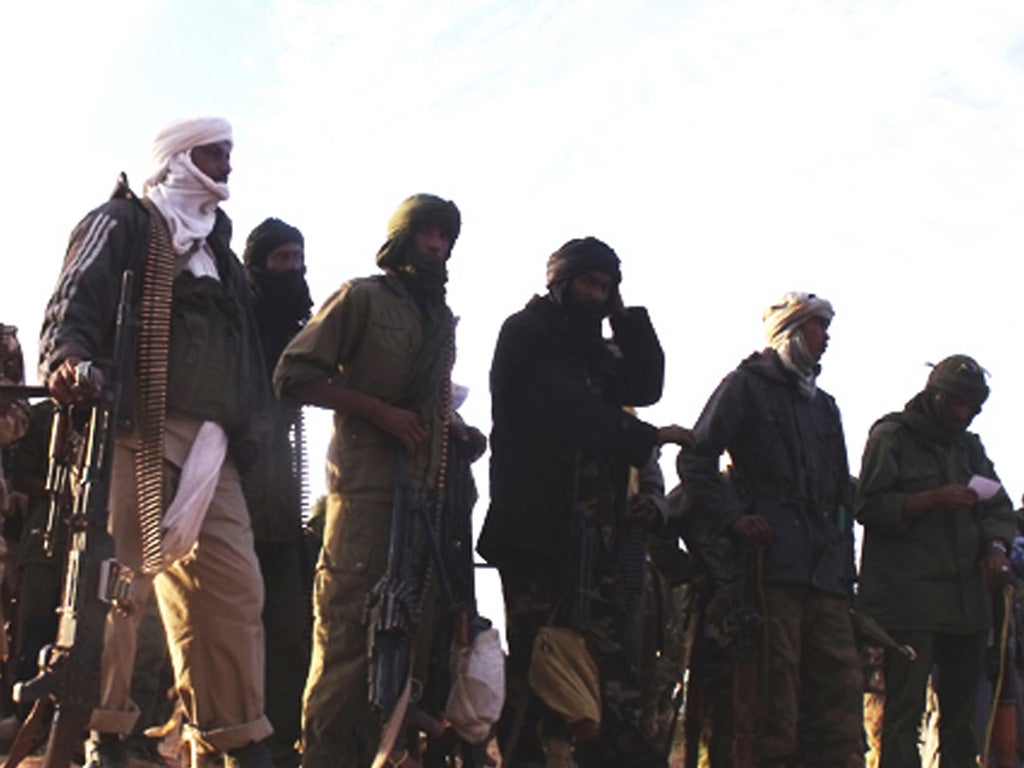Tuareg rebels in northern Mali declare independence
Economic blockade on coup leaders in the south complicates fragile regional balance

The map of West Africa has been tentatively redrawn to include the would-be state of Azawad after Tuareg rebels in the north of Mali declared independence yesterday. The African Union was joined by the former colonial power France in rejecting the bid for secession but a military coup in the south of Mali has so far crippled any international response to the crisis.
The uprising has severed the West African state in two and scattered millions of residents across the regions' borders in the midst of a Sahelian hunger season. Complicating matters is the opaque relationship between the largest Tuareg rebel group the National Movement for the Liberation of Azawad (MNLA), which made yesterday's declaration, and Salafist outfits such as Ansar Dine, which is committed to placing all of Mali under Sharia.
In the fabled city of Timbuktu, and elsewhere in the desert towns of the north, the trumpeted independence has so far meant a new life of uncertainty and violence.
"We barely see the MNLA," a resident in Gao where workers at the Algerian consulate were taken away at gunpoint told the Associated Press. "The people we see are the Salafis... We know they are the Islamists because of their beards."
Yesterday's statement, signed by the MNLA, condemned 50 years of "massacres, atrocities and humiliation, dispossession and genocide" that followed France's decision to place the people of Azawad in the borders of Mali.
The African Union said the unilateral declaration was "null and void" while the European Union said it was "out of the question". France stated that without broad African consent it "means nothing". The response has been complicated by the competing concerns of dealing with the insurrection in the north and mutineers who toppled a democratically elected leader in the capital Bamako.
On 22 March, the army mutinied and threw out President Amadou Toumani Touré. The coup's leader Captain Amadou Sanogo will soon run out of money to pay soldiers as well as fuel and arms to mount operations as the regional blockade bites. Local politicians are calling for power to be handed over to civilian authorities and the constitutional order to be restored.
The regional grouping Ecowas has imposed an economic blockade, while the bloc's military chiefs have put a 2,000-strong force on standby to intervene. Leaders are wary of allowing a precedent that could encourage a domino of secessionist movements across the region.
Paris's handling of the crisis has been more cautious than in recent West African problem areas such as Ivory Coast. France has said it will not put its own troops on the ground but would provide logistical support for an invasion by neighbouring forces.
Join our commenting forum
Join thought-provoking conversations, follow other Independent readers and see their replies
Comments